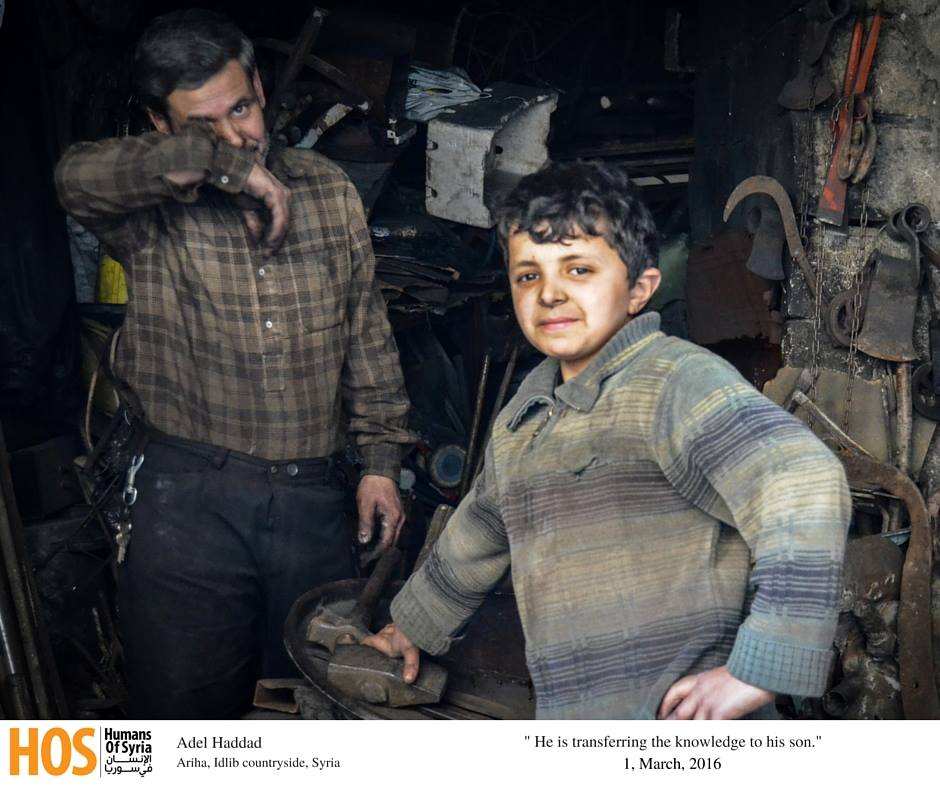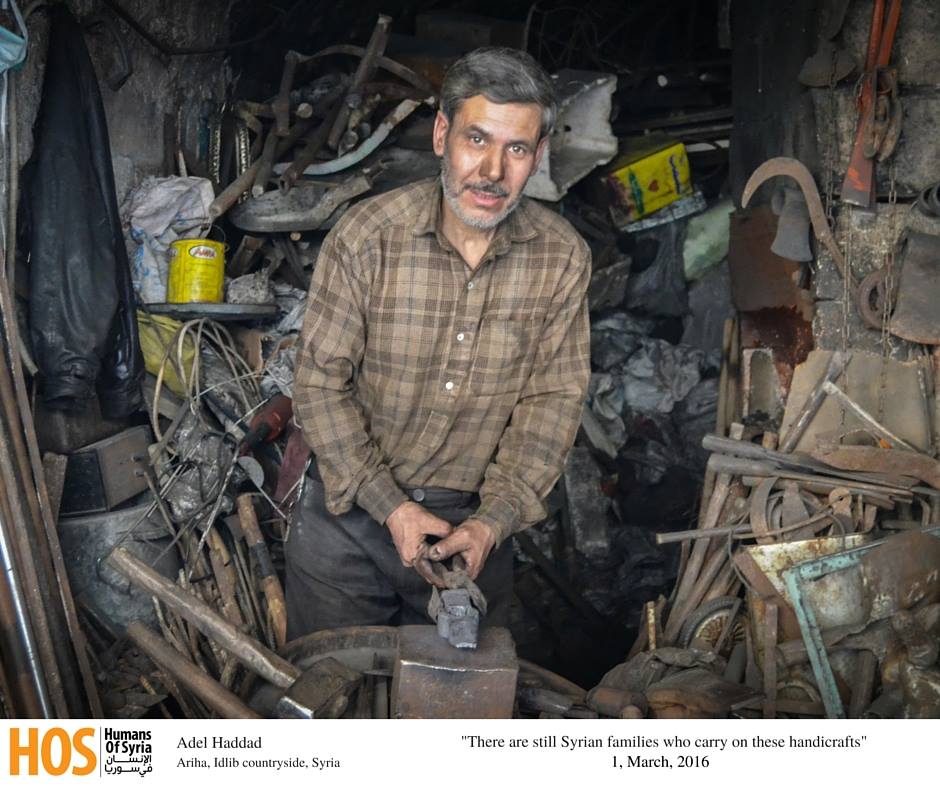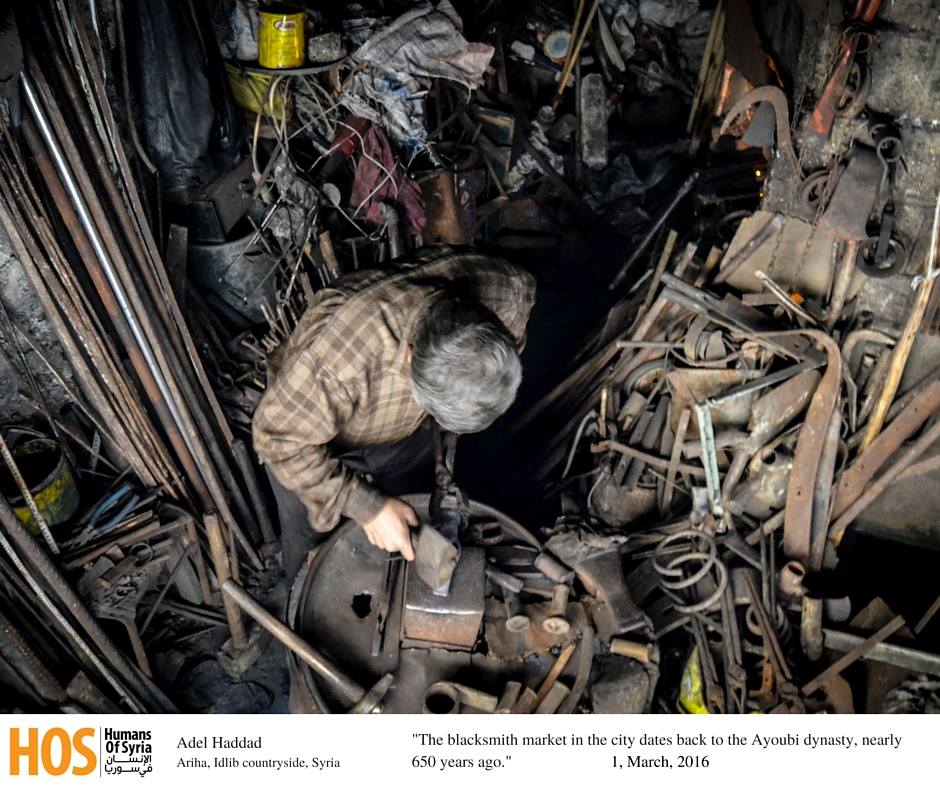Mohammad Qurabi, a photographer at Humans of Syria, had the chance to talk to a Syrian blacksmith in Ariha, a twon in the north of Syria. Here is his story.
Adel Haddad, who goes by the nickname Abu Hassan, is someone in the city who is still working in a very old profession that dates back more than 150 years: Arabic blacksmithing.
He inherited this craft from his ancestors and continues the tradition in their name in Ariha.
Abu Hassan works more than ten hours a day. You always see him engrossed in his work and indefatigable, earning the livelihood of his family.
He was just twelve years old when his father died, so he left school to learn this profession from his older brother.
Abu Hassan likes this profession because he appreciates the old crafts. The pieces remind him of his father and grandfather. Now, he is transferring the knowledge to his son, like his older brother did for him, and their father before him. He sees this profession as part of the family heritage and believes it must continue.
Abu Hassan said to me:
“People’s careers are tales, which tell the story of a rich history and the legacy of precious heritage transferred across generations.
There are still Syrian families who carry on these handicrafts and gain their living from them.
The blacksmith market in the city dates back to the Ayoubi dynasty, nearly 650 years ago. It is adjacent to a number of ancient markets including the traders and spice sellers.
Inside the kiln is a small compartment with an electric fan, which blows upon the hot coals. After 15 minutes, the coals heat up to 500° C, a degree of heat needed to form desired pieces.
Coal is a black rock of which a large part is combustible, composed of carbon and other elements, including oxygen and nitrogen.
Being a blacksmith is one of the hardest and oldest professions in Ariha city, upon which many other industries rely, including farming, industry and tools.”
Photos by: Mohammad Qurabi/Humans of Syria




